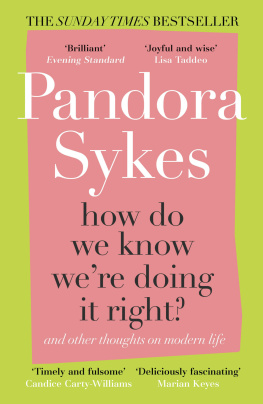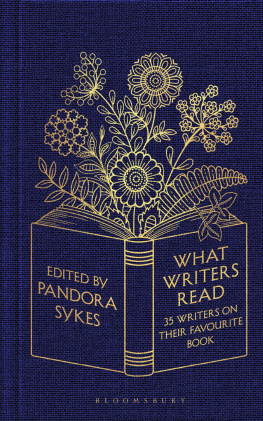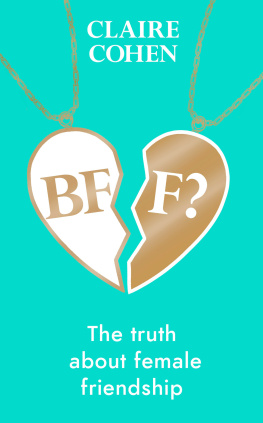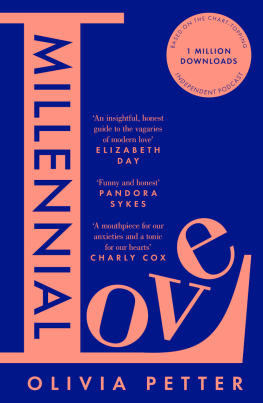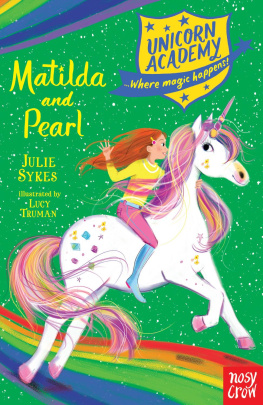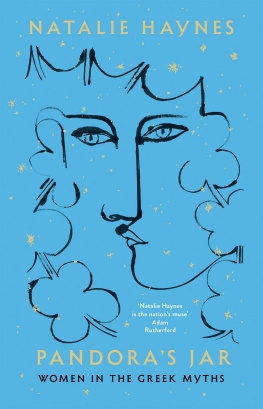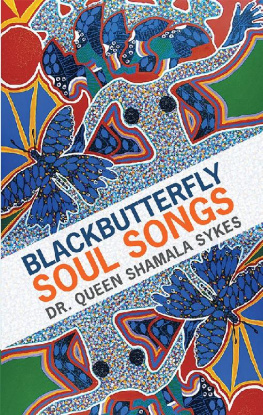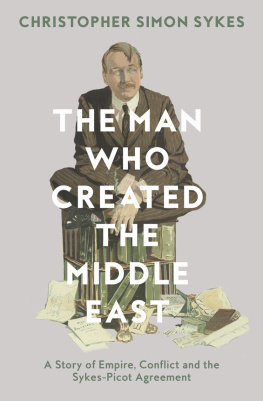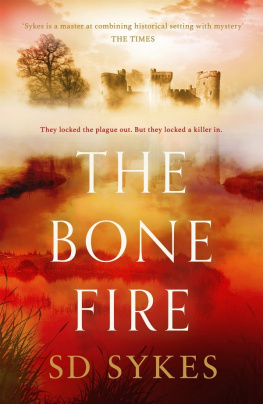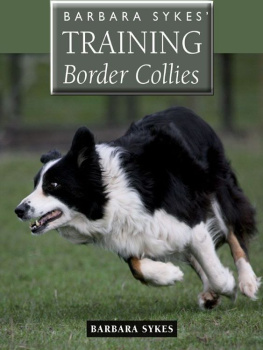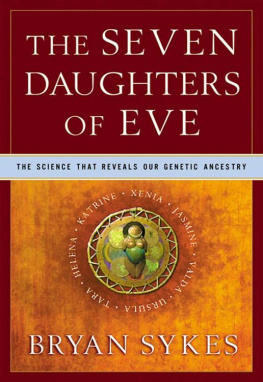
Pandora Sykes
How Do We Know Were Doing It Right?
and other thoughts on modern life

Contents
About the Author
Pandora Sykes is a journalist and broadcaster. She has written for the Sunday Times, Vogue, ELLE and the Telegraph amongst other publications, and was the co-host of The High Low, the UKs No. 1 podcast for women. She lives in London. This is her first book.
Praise for How Do We Know Were Doing It Right?
A timely collection of essays that touch on everything from happiness to wellness; womanhood to consumerism and the anxieties and agendas that consume our lives Sharp and observant writing A manifesto for the millennial woman.
Evening Standard
I absolutely loved How Do We Know Were Doing It Right? Its like a very clever, lucid, charming friend unpacking all the messy anxieties of modern existence with tremendous intelligence and elan. Women will recognise parts of themselves on every page, regardless of their age.
India Knight
Its thrillingly, DELICIOUSLY fascinating about How We Live Now. Shes a MINE of information philosophy, science, literature, stats, all pulled together in her coolly elegant prose. I could not put it down!
Marian Keyes
Sykes stays true to High Low form by using a high-low mix of vocabulary We have all had moments of asking ourselves if we are doing this gestures vaguely right, which makes the book all the more likeable. This is a form of learning how to succeed by failing as it admits to being human.
Independent
[It] will have you understanding the wild, weird and wonderful times we live in a little better.
Red
A masterful collection Citing everyone from Keynes to Kardashian(s), this brilliant, joyful, wise, necessary collection gives you everything you need. The writing is sharp and also lush. Irreverent yet emotionally intelligent. It is an encyclopaedia of tomorrow, a history of yesterday, and a means by which to understand and navigate the present.
Lisa Taddeo, author of Three Women
With her trademark wit, wisdom and warmth, Pandora seems to leave no stone of modern life unturned in this thought-provoking read.
Good Housekeeping
Sykes essays, written pre-pandemic, could have read like a relic from a pampered bygone age with nothing bigger to worry about. Yet, instead, it feels like a clear-eyed warning of the world to which we may now be returning.
Guardian
Dont miss Pandora Sykes debut Its as witty and zeitgeisty as youd expect but its also thoroughly, thoughtfully researched The essays avoid clich to strike a fresh, honest note. Its highly likely youll close this book with half the pages turned down and pictures of passages.
Vanity Fair
Pandora Sykes puts her considerable intelligence, unflinching attention and incredible use of language to scrutinise, unpick, challenge and forgive some of the trickiest knots facing modern women Its a bloody triumph.
Nell Frizzell, author of The Panic Years
Provocative and profound, subtle and thoughtful, funny and beautiful.
Daisy Buchanan, author of The Sisterhood
A brilliant, brave and highly erudite collection of essays. Pandora Sykes is emerging as a leading thinker of her generation.
Will Storr, author of The Science of Storytelling
Thoughtful, well-researched and wise.
Emma Barnett, Newsnight and Womans Hour
By turns sparkling and serious, How Do We Know Were Doing It Right? exemplifies Sykes uncanny reading of the zeitgeist.
Metro
As zeitgeisty and juicy as an episode of The High Low with extra dollops of knowledge, nostalgia, wit and wisdom from Pandoras decade in journalism, I ripped through this. Utterly fascinating.
Emma Gannon, author of The Multi-Hyphen Method
To Z, S and O. Three things I know I got right.
In this short Life
That only lasts an hour
How much how little is
Within our power
Emily Dickinson
Prologue
February 2021
How much how little is within our power, wrote Emily Dickinson in her beautiful poem In this short Life. I keep a scrappy little cut-out of it taped to my computer and looked at it every single day during the writing of this book, like a guiding light. It was a shoe-in for the epigraph. Even though it was written almost 150 years ago, it succinctly observes what I was writing about: the compulsion to control each and every tentacle of our lives and, as a result, to spend more time weighing up our choices than actually living them.
There is an irony to writing a book about choice just before a worldwide pandemic made us feel like all our choices had been stripped away. How could we have decision fatigue when there were no decisions to make? But this is the great hoax of the pandemic. We are making more decisions than ever before, because the way we did everything even the most basic things has been obstructed. You no longer take your kids to school, or hug your mum. It takes an entire afternoon to run minor errands: the queues at Sainsburys are like going to see Robbie Williams at Knebworth; the post office has become an easyJet counter in August. The result is a constant and frenzied re-routing; each of us like Google Maps in a dead-end. What is left is the flatbread of choice, unleavened by details: what to eat, what to believe in, how to breathe. Without the distractions we used to rely on, we are left with only ourselves.
In the beginning, there was an attempt to use the situation to find common ground. There were some memorably lofty endeavours, most famously actress Gal Gadots Hollywood sing-a-long of John Lennons Imagine, which seemed to unite people not in harmony, but in their dislike for the montage. Debates raged across social media about who had it worse. Was it the parents home-schooling, exhausted and stressed but surrounded by miniature people they love; or the person living alone, with all the time in the world to binge Netflix, but wreathed in loneliness? Those in cities, in smaller homes but with proximity to other people; or those in the countryside, physically isolated but with plenty of fresh air and green space? Such comparisons were pointless, amounting to a straw man. The misery is very precisely designed, and different for each person, and if you didnt know better youd say the gods of comedy and tragedy had a hand in it, wrote Zadie Smith of (our first) lockdown in Intimations. The debates very rarely centred on those who actually did have it worse: the immuno-supressed, isolating even between lockdowns; women locked in with violent partners; the single mother with one tablet to home-school five children. We are not in the same boat. We are not even in the same sea.
In the course of one day, news outlets would dizzyingly flipflop between optimistic entreaties that we were almost there and proclamations that we have years of this left. It made me feel like I was living in a version of Katy Perrys Hot N Cold. I stopped buying the papers for the first time in thirteen years and avoided the news on the telly. I put up my blinkers something I had always cautioned against, no matter how bad the news cycle was. But how could anyone absorb all this uncertainty, multiple times a day, without spiralling? The special trouble with uncertainty is that its a doorway to infinity, wrote the human-behaviour expert Oliver Burkeman. When youve no idea what tomorrow will bring, its easy to fill that gap with fantasy, and the world of fantasy knows no bounds. Its possible to imagine things getting limitlessly bad. Id felt myself teeter shortly after having my second baby and, having come through a mercifully brief period of post-natal depression, I couldnt afford to teeter again. I know Im not alone. I know people spiralling so fast that they have become human helixes: just a whirr where bone and flesh once were. Those who were not religious found themselves grappling for a belief system, in the hope it would bring them answers. I looked to the sky for my conviction a sort of mystical take on pathetic fallacy. If it rained, we had a while longer to go before All This was over. If the sun shone, I felt change was afoot.
Next page
